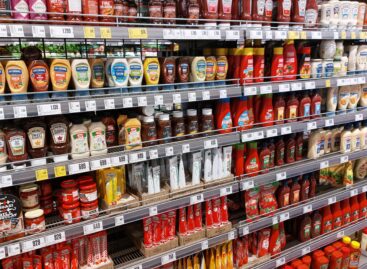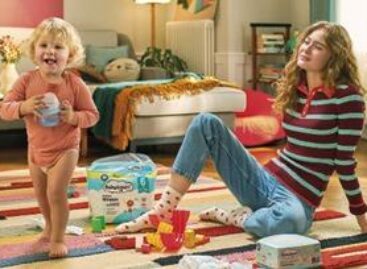Hair raising new innovations
We can differentiate between three segments in the hair care category: shampoo, conditioner and treatment. Hair care in general produced a robust, 16.6% value sales growth in 2022.
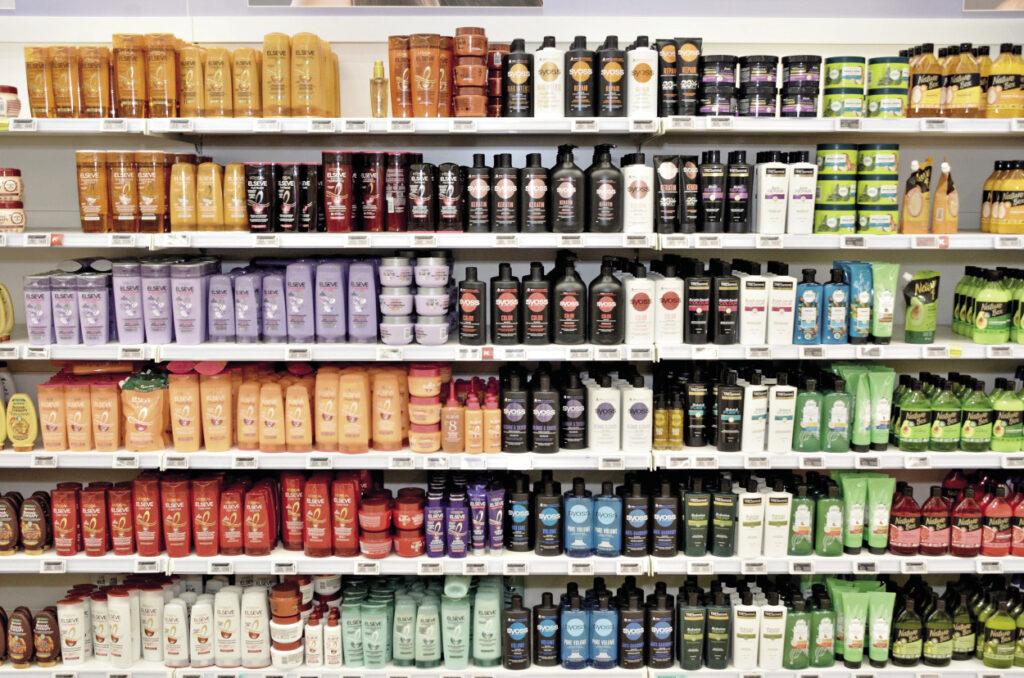
Shampoos represent the largest segment, whereby treatment products are growing the most dynamically
Serum and mask
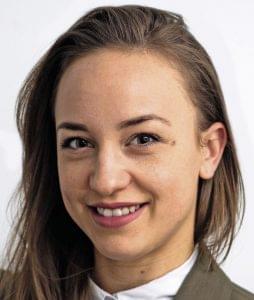
Zsófia Gózon-Karajz
trade marketing manager
L’Oréal Magyarország
Zsófia Gózon-Karajz, L’Oréal Magyarország Kft.’s trade marketing manager:
“2022 was an especially memorable year for L’Oréal. One of the reasons was rolling out the Hyaluron Plump range – its hydrating serum with 2% hyaluron complex was an instant success already in the first year.”
In 2023 L’Oréal Magyarország Kft.’s Fructis brand is putting the pineapple version of the popular Hair Food mask on the market. The company’s Botanic therapy brand will come out with Hair remedy masks, which can effectively nourish the hair in just 1 minute.
Drugstores are the most important retail channel in both beauty care and hair care – 57.9% of retail sales in the category were generated here in 2022.

Mariann Karsai
brand manager
Henkel Magyarország
Mariann Karsai, Henkel Magyarország Kft.’s Hair Care and Body Care brand manager:
“In the drugstore channel Henkel managed to hold on to its beauty care market leader position in 2022, closing the year with a 20.8% market share.”
The proportion of online sales is growing, but there has been no breakthrough yet.
Water use and sustainability in focus
In 2022 Henkel’s Gliss brand dominated the leave-in conditioner segment; the best known products were Express Repair Conditioners that facilitate combing. Sales of rinse-out Syoss hair conditioners also developed nicely. Both the Syoss and the Nature Box brands rolled out 4in1 hair care products in 2022. January 2023 brought the debut of Gliss Night Elixir overnight hair masks with the HaptIQ technology, in 3 versions: for damaged hair, damaged hair and split ends, and normal or dry hair.

Yvette Krubl
corporate communications manager
Procter&Gamble
Yvette Krubl, Procter&Gamble’s corporate communications manager in Central and Eastern Europe: “Shoppers like the environmentally conscious and ethical behaviour of beauty product makers, but in recession period, when the efficiency of products matters more than anything else, organic products become less important.”
Procter&Gamble Bear fruits hair masks are popular all over the world, and they provide intense hydration with the help of natural ingredients such as aloe vera, pineapple, strawberry, coconut and avocado. The company’s new Head&Shoulders product doesn’t just treat dandruffs, but also prevents their formation. Combining the Pantene brand’s famous Pro-V formula with bamboo and biotin in the Miracles range reduces hair loss caused by split ends, and at the same time contributes to the growing of stronger hair.
Two directions in hair care routine
Angéla Hevessy, Unilever Magyarország Kft.’s brand manager:

Angéla Hevessy
brand manager
Unilever Magyarország
“Consumers are more conscious about hair care product ingredients than before, and they are actively searching for products containing hyaluronic acid, keratin or biotin. In addition to their primary function, these products offer a solution to the special problems of various hair types.”
There are two main directions in hair care routine: on busy weekdays women want fast and effective techniques, while the weekend hair care routine is becoming a source of pleasure, a real experience. Shoppers like to experiment in the different product categories, and the popularity of overnight products is growing.
Unilever Magyarország Kft.’s TRESemmé brand introduced the Hydrate&Purify range in 2021.With the help of these products – as part of a routine that consists of several steps – greasy hair becomes clean, glossy and full of life. This year a 1-minute intense hair mask was added to the range, which has a hydrating effect. The company’s keratin and biotin containing product lines are also very successful. //
Hair care? Branded products!
Combined sales of the six hair care categories audited by NielsenIQ were worth more than HUF 44bn in the January-December 2022 period, as like-for-like value sales grew by 17% and volume sales were at a standstill. Drugstores constitute the most important retail channel in terms of value sales, with an 86% sales share.
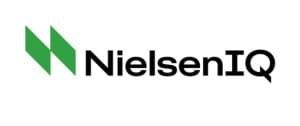

Guest writer:
Zsófia Horváth
junior analytic insights associate
NielsenIQ
Shampoo: sales were worth more than HUF 18bn in the examined period, having grown by 14%, while volume sales augmented by 2%. Manufacturer brands had a 92% share in value sales. However, private label (PL) sales were growing more dynamically in both value and volume.
Hair dye: this segment generated sales bigger than HUF 10bn, as value sales jumped 11% and volume sales fell 1%. Manufacturer brands were so dominant that basically they have the whole market for themselves. Hair treatment: sales were surging in both value (+30%) and volume (+14%), and because of this almost 6,000 hectolitres of hair treatment product was sold in the value of HUF 4.5bn. Just like in the other hair product categories, consumers trust branded products much more – they realised 90% of sales.
Hair conditioner: value sales expanded by 14% to go above HUF 4.5bn, while volume sales stagnated. Here it was also manufacturer brands that dominated, as they generated 93% of value sales. Hair lacquer: value sales soared by 25% and amounted to HUF 3bn. Volume sales were at 9,000 hectolitres, and this quantity was 4% bigger than in the base period. Manufacturer brands had an 84% market share in value. Hair styling: this segment produced a 28% sales growth in value, going above the HUF 2.5bn level in the given period. Volume sales augmented by 4% and exceeded 4,000 hectolitres; 86% of products sold were manufacturer brands. //
This article is available for reading in Trade magazin 2023/5.
Related news
It isn’t about Rossmann this time
🎧 Hallgasd a cikket: Lejátszás Szünet Folytatás Leállítás Nyelv: Auto…
Read more >Fashion, drones and sustainability – the new face of agriculture at the AgriTech InnoExpo event
🎧 Hallgasd a cikket: Lejátszás Szünet Folytatás Leállítás Nyelv: Auto…
Read more >

